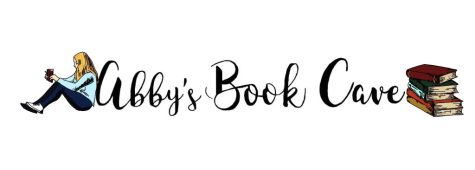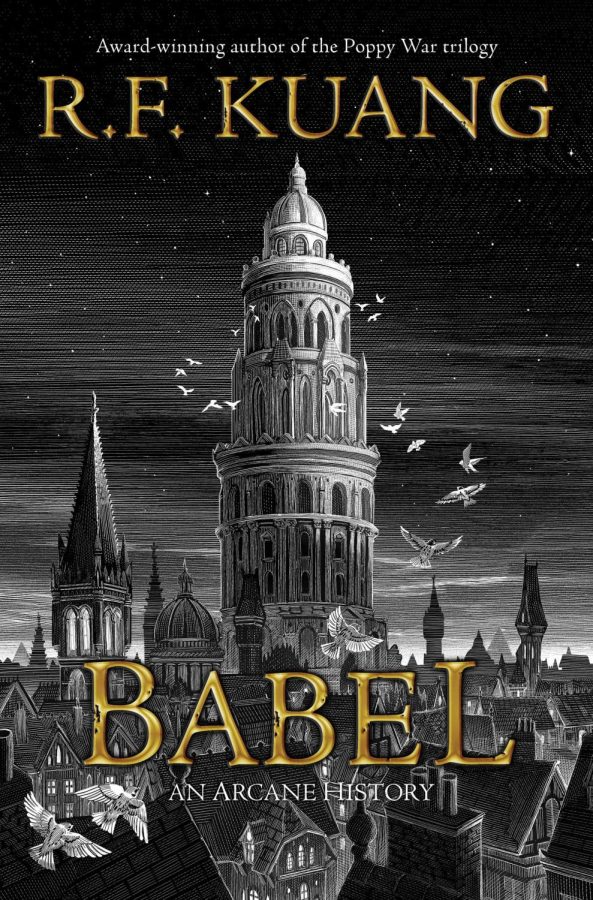Let’s babble about Babel
September 29, 2022

Books Editor Abby Horton will be regularly featuring on Wolfs Print, giving the student body book recommendations and book reviews (Art By: Ananya Basarkar)
Babel

I recently finished Babel by R.F Kuang and immediately knew I had to review it. I received Babel in a book subscription box (Illumicrate) and the moment I started the book I knew it would be beautiful. Babel is a book that is hard to label as just one genre – it could be described as dark academia, historical fiction, possibly fantasy, and definitely a tragedy. Babel manages to discuss issues like colonialism, racism, sexism, and corrupted authority all while weaving an enticing story that keeps readers interested.
“She learned revolution is, in fact, always unimaginable. It shatters the world you know. The future is unwritten, brimming with potential. The colonizers have no idea what is coming, and that makes them panic. It terrifies them.
Good. It should.”
– R.F Kuang, Babel
The Characters
Babel follows four main characters: Robin, Ramy, Letty, and Victoire. Robin, a Chinese boy raised in London, is the most prominent character out of these four, and most of the book takes place in his perspective. Robin is taken from his country, Canton, by Professor Lovell early in the book when Robin’s family dies from sickness. Robin is then raised in London where he spends his childhood studying Mandarin, Latin, and Greek in preparation to attend Oxford’s Royal Institute of Translation. Robin’s character is established early in the book as determined, smart, and eager to please and live up to the expectations of Professor Lovell. However, the beauty of this book, in my opinion, is the way Robin’s character subtly changes throughout the book to the point where he is a completely different person at the end. Robin’s experiences at Oxford include a lot of exposure to racism and colonial ideals, as well as witnessing the sexism directed to his female classmates. I found it fascinating to watch Robin experience Oxford in such a dark way while still trying to convince himself that he was lucky to be given the honor of studying there. I think discussing the development of Robin’s character is very difficult without going into spoilers, but his character is one of my favorites that I have read this year.
The Plot
The plot of Babel mostly takes place in Oxford with Robin and his three classmates. The plot of this book is interesting because the storyline is interesting and keeps the reader on their toes, while also dealing with really dark and thought provoking subjects. Reading Babel as a white person made me feel uncomfortable, but after doing some reflecting I realized that the whole purpose of this book was to make white people uncomfortable and to make them think. But the beauty of Babel is that uncomfortableness is perfectly blended into a plot line that is captivating and is capable of distracting from that uncomfortable feeling. Babel has a plot that twists and turns and keeps the reader coming back for more. Those who have read other books by R.F Kuang, such as The Poppy Wars, know that Kuang likes to make her reader feel strong emotions while reading her book, both joyful and sorrowful. Babel is a great representation of this book; I went through so many emotions during my reading of this book that often times it left me feeling overwhelmed in the best way. Babel did such an amazing job of exploring colonialism, racism, sexism, and many other issues while keeping the plot entertaining, and for that I applaud R.F Kuang.
“They were men at Oxford; they were not Oxford men. But the enormity of this knowledge was so devastating, such a vicious antithesis to the three golden days they’d blindly enjoyed, that neither of them could say it out loud.”
– R.F Kuang, Babel
The Writing
Babel’s writing was really enjoying. R.F Kuang used so much beautiful language to discuss such dark topics and that added to my love for the book. I have heard some complaints from fellow readers that the characters use language too modern for the 1800’s, but I appreciated this aspect of the book because I wasn’t struggling to understand what the characters where saying. The magic system in Babel involves translating languages, and the way Kuang discussed the connections and differences between different languages was fascinated. Reading the characters in Babel nerd out about translations and languages made me more eager to learn new languages and understand their excitement.
Final Thoughts
I thought Babel was a truly beautiful book, and I actually think it would be a good candidate for an English school book. I gave Babel four stars because while I truly loved the book, the first half went a little slowly and it took me a while to get through. I do think, however, that the slow pace of the beginning allows us to truly immerse ourselves into the world and the characters, which makes the second part of the book that much better. Babel is a book I would recommend to just about anyone, and it is a book that I think everyone should read. I would also like to point out that Babel should not only be looked at through white people’s perspective, and I encourage everyone to read and listen to reviews by people of color.



